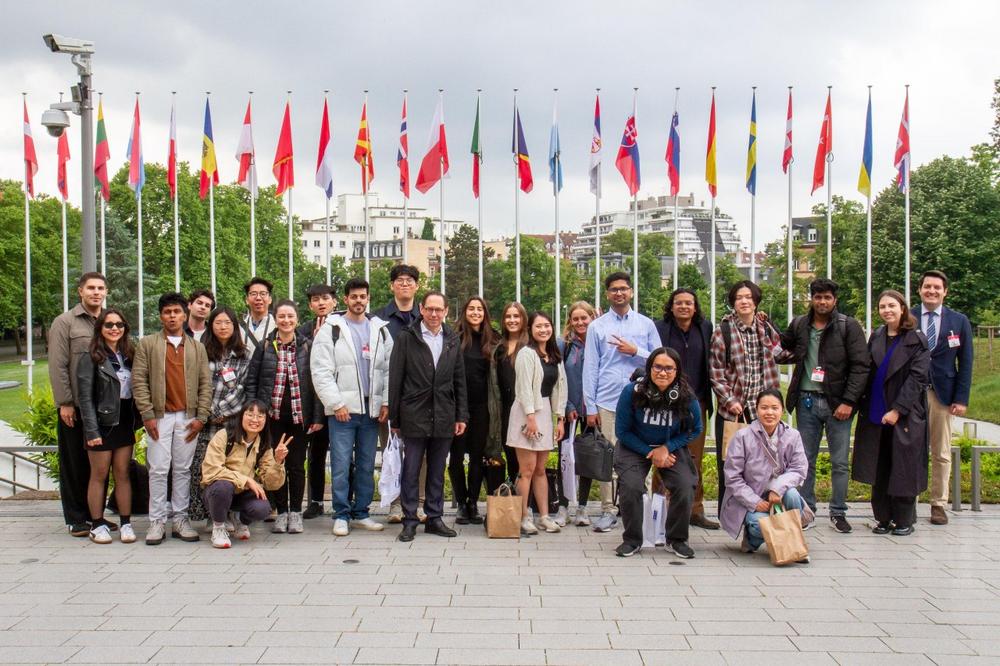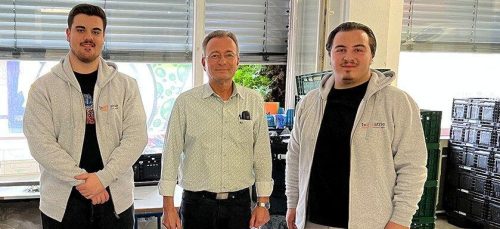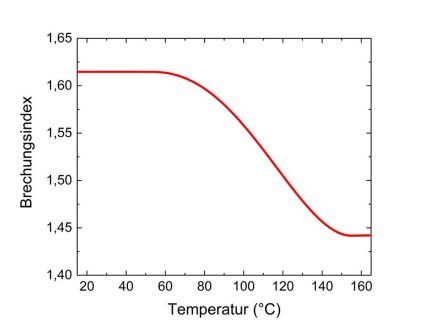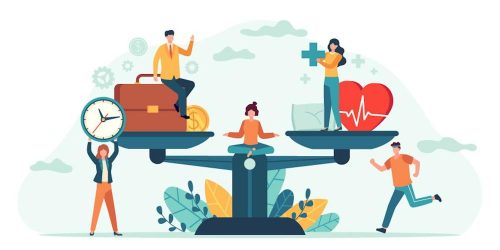
A crisis as an opportunity
Mayor Harry Mergel set the tone in his welcoming speech: “Energy follows focus, and we can send out a positive signal.” Heilbronn is a university city with a secure future. The city has held this title since TUM settled in the city known for its Käthchen legend. For Ali Sunyaev, professor and vice president of the TUM Campus Heilbronn, this is a success story with a clear mission: “If you don’t think about tomorrow today, tomorrow will be yesterday.” The two keynote speakers, Prof. Frank Baasner, former director of the German-French Institute (dfi), and Matthias Schäfer from the Konrad Adenauer Foundation, showed how this can be achieved.
More that unites than divides
“We understand,” said Baasner. We understand that Europe must pursue its own defense strategy and promote new technologies. Especially in times when Europe’s stability is threatened by American pressure, a war on Poland’s borders, and, not least, climate change, it is important to remember our shared values of freedom and peace. “We are standing in the middle of the river and the water is rising,” said Baasner. Nevertheless, the countries in the EU have more in common than divides them. In addition to the social and education systems, these include urbanization and, from a historical perspective, the establishment of cities.
Matthias Schäfer took the guests on an excursion to Algeria. No surprise, since Schäfer heads the Konrad Adenauer Foundation’s office there. For him, it’s important to make Europe more visible again in the North African region. Ultimately, Algerian influence is enormous, especially in our neighboring country France, especially in our neighboring country France: 40 percent of the generation eligible to vote in the next election has in the Maghreb state. The concluding discussion focused on topics such as Ukraine’s possible EU membership, but also on the question of how we can secure democracy. For Baasner, this can only be achieved through real experience: “Every student in Europe should take part in a student exchange and experience advantages of our unity.”
Lively discussion with AI experts in the heart of Europe
To give the students a practical experience of the continent during European Week, an excursion was planned for the second day. This was accompanied by Dr. Stefan Seidendorf, deputy director of the dfi. And where better to feel the spirit of Europe than in Strasbourg, the city at the heart of the continent that is home to some of the most important European institutions? One of these was on the itinerary: the Council of Europe. There, the students had the opportunity to talk to Andreas Siegel, former top German diplomat in the organization, and Vadim Pak, member of the Steering Committee on Artificial Intelligence. Pak contributed to the EU Artificial Intelligence Act, the first comprehensive set of rules on artificial intelligence. Siegel revealed that the highlights of his many years of work for the Council of Europe were the development of a medium-term plan for the body and negotiations with candidate countries. Pak reported that he sees the main task of the Steering Committee as bridging the gap between politicians and legal experts on the one hand and AI engineers on the other. In a lively discussion with the students, he described the Council of Europe’s Cybercrime Convention as an enormous global success and revealed the particular challenge of creating a set of rules for dealing with AI: “The problem lies in ex ante regulation: you are forced to take action before something happens.”
Innovative business models
The students were able to put their knowledge into practice in a workshop on the third day of the event. Under the motto “Doing Business in Europe,” they developed business models for transnational cooperation. They presented these to the workshop leaders, Dr. Eileen Keller, research assistant at the dfi, and Frank Baasner. Among the many original ideas put forward by the students were a concept for recycling special products and an electronic application that would enable people to identify themselves without a passport or cell phone.
The students were also the focus of attention at the closing event in Heilbronn’s Parkhotel, where they told the audience about their perceptions of life in Europe and their experiences during European Week. It became obvious that the students particularly appreciate the freedom of movement within the Schengen area, the value placed on the individual, and the welcoming culture. Organizer Trifonov had come up with something very special for the closing panel: a chair was left empty on the podium with Matthias Schäfer, Florian Stupp, student at TUM Campus Heilbronn and founder of the start-up Public Makers, and moderator Charleen Florijn. People from the audience could take turns sitting on this chair to participate in the discussion.
Deeper understanding through exchange
“Many people in the audience took the opportunity to participate in the discussion and express their views on relevant issues,” reports organizer Trifonov. “This made the discussion much livelier and more dynamic in a positive sense, because many topics came up that we hadn’t planned for.” The participants in the discussion agreed that Europe’s current difficult situation gives individuals all the more opportunity to raise their voices and make an important contribution. In this way, decisions would be made by a much larger group than in a dictatorship, and many more new ideas could emerge.
What conclusions does Trifonov draw from European Week? “For me, it is particularly valuable to see how students—especially international students—are able to understand European perspectives and perceive socio-political processes in a more differentiated way after the event.” It is precisely through the exchange of their own diverse cultural and individual backgrounds that a deeper understanding of Europe, its history, and its political structures emerges. “That’s why I very much hope that this format will be continued—it makes an important contribution to international education.”
Die TUM Campus Heilbronn gGmbH
Bildungscampus 2
74076 Heilbronn
Telefon: +49 (0) 7131 264180
Telefax: +49 (7131) 645636-27
https://www.chn.tum.de/de
Telefon: +49 (7131) 26418-501
E-Mail: Kerstin.Besemer@tumheilbronn-ggmbh.de
![]()




